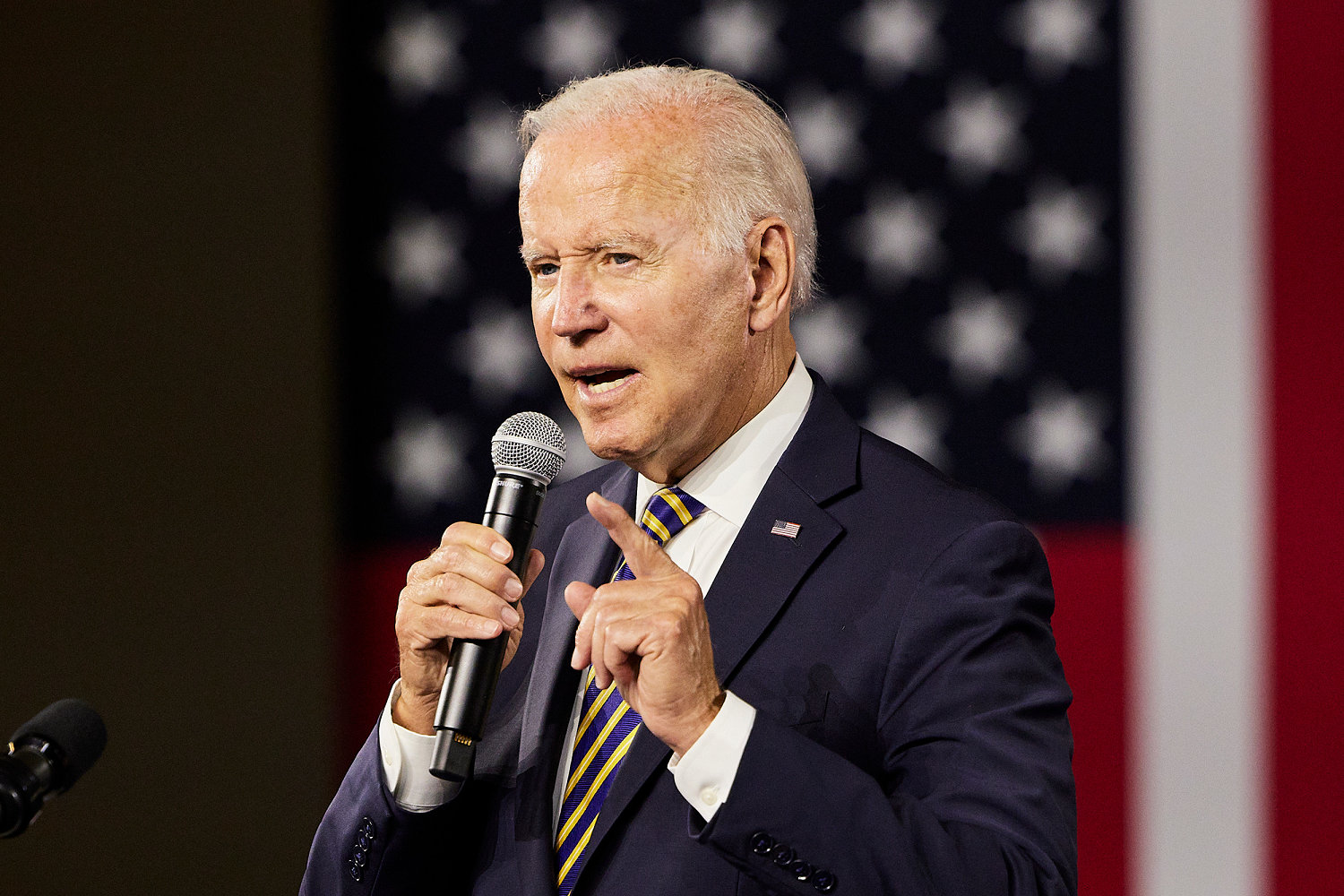
CLEVELAND — Ohio’s Republican-controlled state legislature has approved a bill to secure President Joe Biden’s spot on the state’s November ballot, ending weeks of political gamesmanship over a deadline that in past years was relaxed without drama.
The measure, which on Friday passed in a special session of the state Senate, now heads to Gov. Mike DeWine, a Republican. DeWine, who called the special session to resolve the Biden issue and tackle unrelated campaign finance legislation, is expected to sign the bill.
“I don’t think anybody on this side of the aisle really feels like they’re going to be voting for President Biden, but at the same time, Ohioans deserve a choice in this election, and that’s what we’re seeking to give them today,” state Sen. Rob McColley, a Republican, said Friday in supporting the measure.
It was not immediately clear if the bill’s approval will halt a push to nominate Biden by a virtual roll call vote well ahead of a late August convention. The Democratic National Committee announced that plan earlier this week, hoping to sidestep what had become an unpredictable partisan fight and ensure Biden is certified as the nominee before Ohio’s Aug. 7 deadline.
“I’m going to vote for this, because just maybe we won’t have to have the Zoom,” Democratic state Sen. Bill DeMora, referring to the virtual meeting app, said during Friday’s session. “But I think we probably still will.”
The DNC has scheduled a Tuesday meeting for its rules and bylaws committee to advance on a resolution that would enable the virtual roll call. A full DNC vote would follow.
In the past, both parties have had to reconcile late summer nominating conventions with earlier state deadlines to certify candidates for the general election ballot. Ohio, for example, eased the deadline four years ago for both Democrats and Republicans without little fanfare or controversy. This year, the issue only applies to Democrats in Ohio, as the GOP has planned a mid-July convention.
Ohio Secretary of State Frank LaRose, a Republican, warned Democrats last month that Biden was in danger of not qualifying for the ballot. In recent weeks, many GOP lawmakers conditioned their support for moving the deadline on a vote to ban non-U.S. citizens from donating to campaigns for state ballot initiatives. DeWine requested that the state legislature consider both of those issues in his call for this week’s special session.
Democrats have described the restrictions on foreign money and other elements of the legislation as an unnecessary “poison pill” that would weaken citizen-led petition drives. Voters in Ohio last year codified abortion rights in the state’s constitution, and progressives are backing a redistricting reform measure targeted for the November ballot.
Republicans hold supermajorities in both the state House and Senate, but the GOP leaders of both chambers were rarely on the same page when negotiating the legislation, a reflection of fractious internal politics that have rocked the Ohio statehouse in recent years. The uncertainty frustrated Democrats and prompted Biden and the DNC to set the virtual roll call in motion.
In the end, the state House and Senate approved both the campaign finance-related legislation and Biden fix in separate bills.
“This bill — only a temporary fix — was conditional through the attack on voter ballot initiatives,” state Rep. Dontavius Jarrells, a Democrat, said in a Thursday floor speech in support of the Biden-related bill. “The political maneuvering and legislative tricks that have brought us here to today’s special session are a stark reminder of why we must end gerrymandering in Ohio.”
Jarrells and other Democrats voiced frustration that the bill only relaxed this year’s certification deadline, meaning that presidential nominees of either party could face a similar situation in future elections. Democratic amendments to make the fix permanent were tabled Thursday and Friday. Republican lawmakers said they are open to the idea but want more time to seek input from state and local elections officials
“I think we ought to take some input from the secretary of state,” state Rep. Bob Peterson, the Republican who chairs the House Government Oversight Committee, said Wednesday. “I think we need to talk to local boards of elections. There’s reasons why those timeframes are put in place so that they can do the work.”





